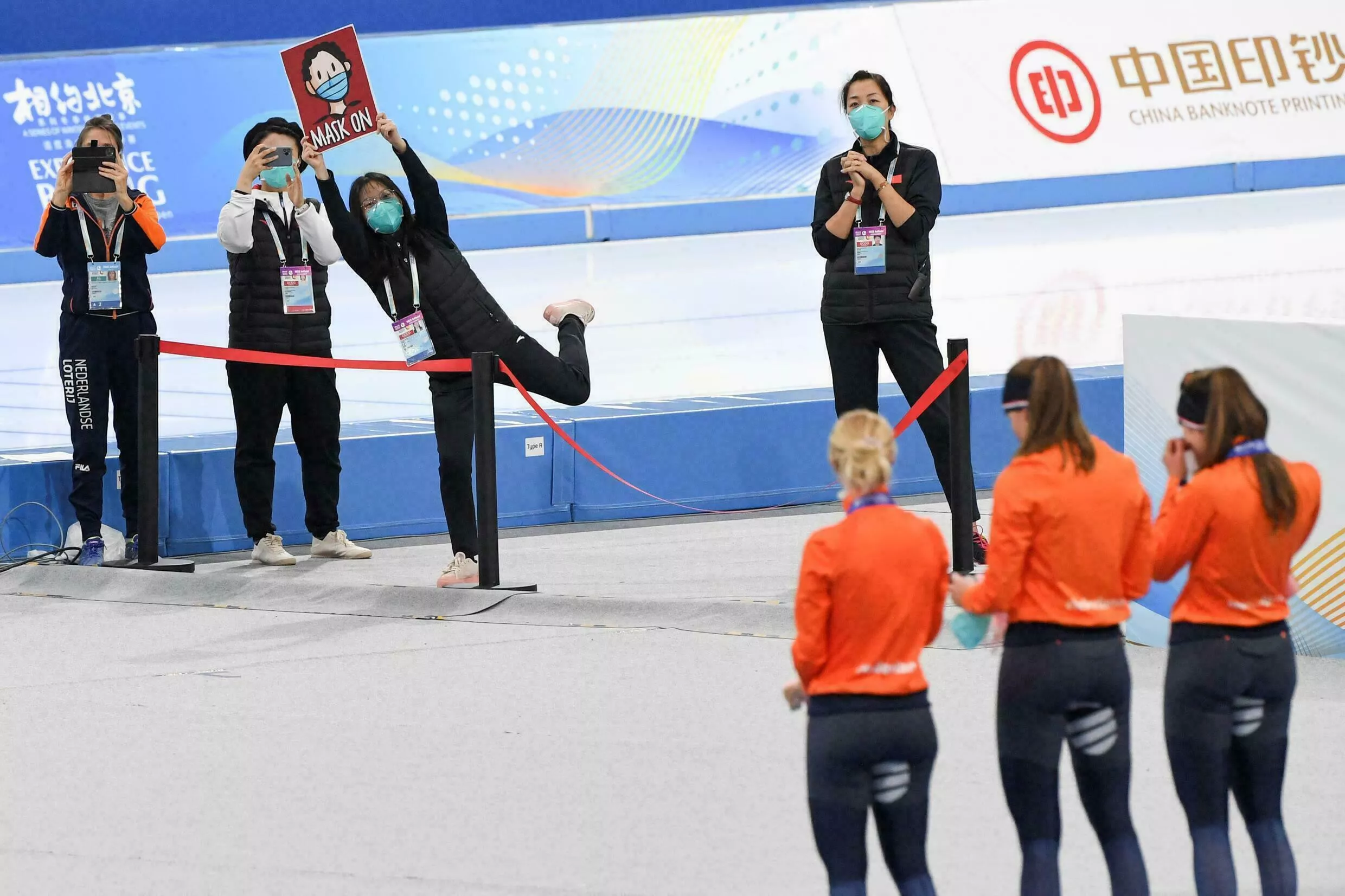What to expect from China's Winter Olympics
Beijing 2022 Games will have strictest Covid-19 safety rules at a mass sporting event since the pandemic began
BEIJING:Beijing, which will host the 2022 Winter Olympics, is staging a series of test events -- giving a strong taste of what the Games will look like and what coronavirus measures will be in place.
AFP Sport takes a look at what athletes and spectators -- only people living in mainland China are allowed to attend -- can expect when the real thing happens on February 4-20 next year:
China plans to host the Games under what could be the strictest Covid-19 safety rules at a mass sporting event since the pandemic began, even compared to the summer's mostly crowd-free Tokyo Olympics.
Chinese officials say participants will stay in a "closed loop" -- a strict bubble insulating them from spectators and the outside world for the whole Games.
Athletes will have to be fully vaccinated or undergo a 21-day quarantine on arrival in the Chinese capital. Athletes did not have to be vaccinated in Tokyo.
Everyone in the closed loop will have to take daily virus tests.
Like in Tokyo, athletes will have to wear masks pretty much all of the time, except when they are competing and for a quick photo on the podium if they win a medal.
China has largely sealed its borders since the virus emerged there towards the end of 2019, but about 2,000 overseas athletes, coaches and team officials were expected to be involved in the test events.
State media showed overseas participants landing in Beijing met by police in hazmat suits.
The ongoing test events, which are a chance for organisers to fine-tune preparations, last until the end of the year and include domestic and international competitions in everything from ice hockey to luge and speed skating.
Athletes currently in Beijing appear resigned to the rules.
"The pandemic prevention management of this competition provides athletes with great protection," speed skater Sophie Kraaijeveld of the Netherlands, told Chinese state media.
Dutch speed skater and Youth Winter Olympics champion Isabel Grevelt said the measures "make me feel safe", Xinhua reported.
Chinese snowboarder Cai Xuetong said that the main disruption has been in the build-up to the Games -- China's sports authorities have prevented athletes from competing overseas because of the virus.
"We always travel to different countries and do lots of competitions, but last season, it was totally off," Cai recently told AFP in Shanghai.
Unlike Tokyo's mostly empty stadiums, the Beijing Games will take place in front of crowds, albeit tickets will only be sold to people living in China.
There have been no crowds yet at the test events, but others, such as AFP reporters, had to prove they tested negative for the virus in the previous 48 hours and show their recent travel history.
Once inside, they had to wear N95 masks -- a higher-spec alternative to surgical masks -- and interview athletes via video only.
That is different from Tokyo, where reporters were able to interview athletes face to face, albeit at a distance. Such rules could yet change for the real thing in February.
Large signs at Beijing venues remind everyone to maintain social distancing, wash hands and refrain from eating.
Organisers argue that the measures will give Beijing the best chance to hold a safe, smooth Games.
But they also admit they face "great pressure in epidemic prevention and control".
If any athletes test positive for the virus they will be taken in negative-pressure ambulances to designated medical centres for treatment, said Zhao Chengfang, deputy director for Covid-19 prevention at the Capital Indoor Stadium.
A small army of about 100 emergency-response personnel is on standby to enter the stadium if needed, Zhao added.


COMMENTS
Comments are moderated and generally will be posted if they are on-topic and not abusive.
For more information, please see our Comments FAQ